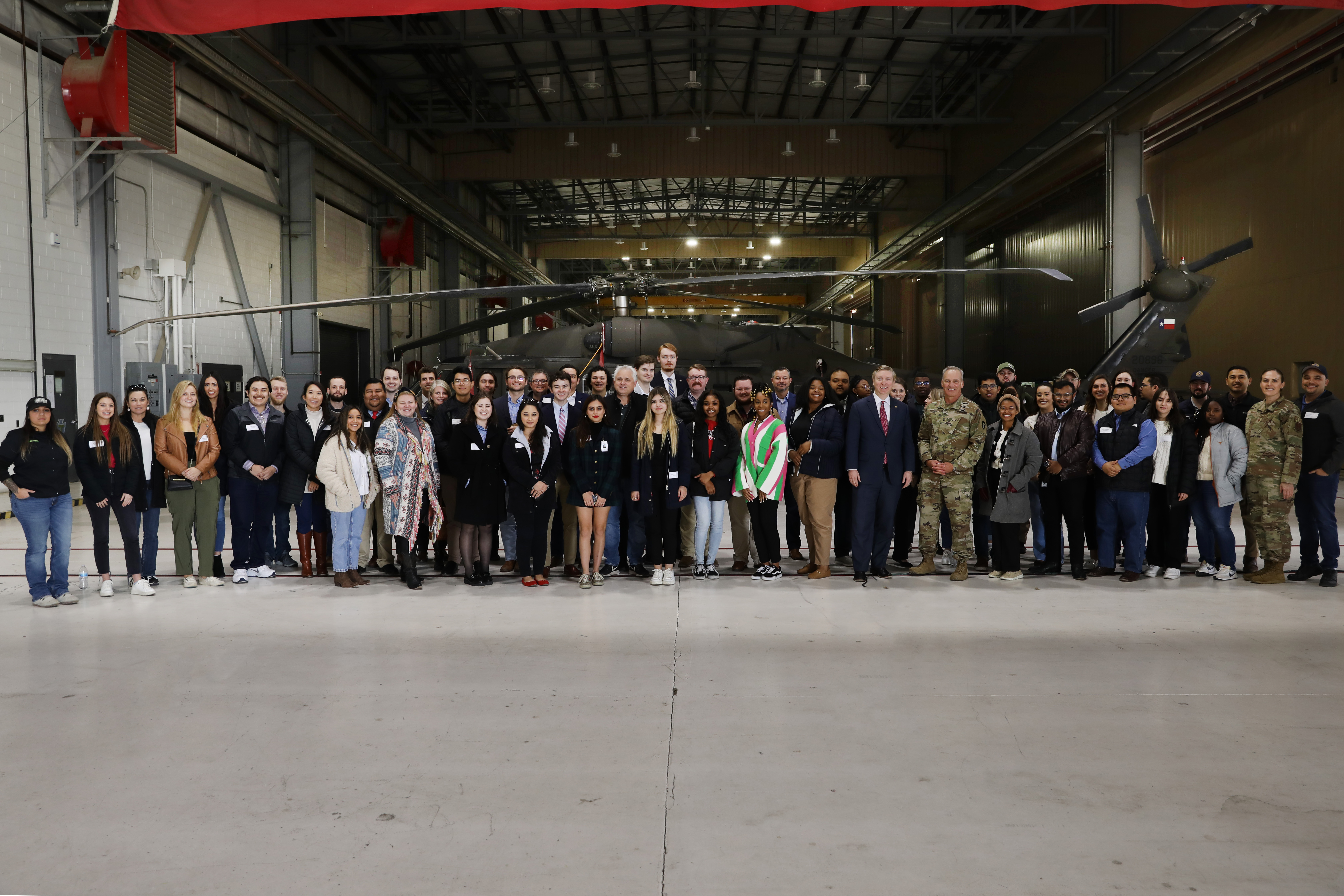 AUSTIN, TEXAS - The Texas Military Department held its annual Legislative Day, Feb. 3, 2023, offering state legislators a firsthand look at the state's military capabilities.
AUSTIN, TEXAS - The Texas Military Department held its annual Legislative Day, Feb. 3, 2023, offering state legislators a firsthand look at the state's military capabilities.
The day kicked off with an address from Maj. Gen. Win Burkett, commanding general of the 36th Infantry Division, Texas Army National Guard. The guests were allowed to see training simulators and exhibits from the Texas Army National Guard, Texas State Guard, Texas Air National Guard, Counterdrug Task Force, and Special Operations Detachment-Africa, all headquartered in and around Camp Mabry in Austin, Texas.
Johnathan Silva, chief of staff for Representative Richard Hayes was on hand for Legislator Day. “One of the biggest takeaways was how Guardsmen are utilized throughout the state,” Silva said. “They are some of our key personnel for Operation Lone Star and natural disasters.”
The day’s events included briefings on the capabilities of the TMD and gave the legislators and their staff an opportunity to gain a deeper understanding of the role the TMD plays in keeping Texas safe.
Legislators witnessed an F-16 fighter jet take off and rode in a C-130 transport plane, both flown by Texas Air National Guardsmen. Once aboard the C-130, the congressmen and women could feel the equipment in action.
“The flight was the most memorable part of the day.” said Silva. That’s not something that your average person gets to experience. Whether they are full-time or traditional, 1-weekend-a-month Guardsmen, they are expert trained personnel to fly these aircraft.”
The event aimed to showcase the department's capabilities and give legislators a better understanding of the work the TMD does for the state of Texas.
The Texas State Guard showcased their search and rescue equipment, highlighting their commitment to providing support during times of need to the state of Texas. The exhibit included a range of equipment, from communication systems to rescue boats and vehicles.
Members of the Texas State Guard were on hand to demonstrate the equipment and share their experiences using it in real-world situations. They emphasized the importance of having the right tools and training to effectively respond to emergencies and provide aid to those in need. The display of their search and rescue equipment showcased the Texas State Guard's commitment to serving the state and its communities and highlighted the importance of preparedness in times of crisis.
Capt. Keith Weaver, Alpha Company, 5th Battalion, 19th Special Forces Group was at the event to share the work that the Special Operations Detachment-Africa is doing as part of their duties in theater.
“We’re here to talk about what our elements are doing. We are privileged that we get tasked around the world,” said Weaver. “Our company was in Syria, Iraq, and the Arabian Peninsula last year. Texas is one of a handful of states that has a Special Operations component. We are unique because we could be tasked anywhere around the world.”
The Texas Military Department serves as the state's military branch, providing support to local communities during times of need, including natural disasters and emergencies. The department is also a crucial component of national security, providing support to military operations both domestically and abroad.
Legislators also learned of one of the lesser publicized entities of the TMD, the Joint Counterdrug Task Force. Task Force officials shared what the JCDTF provides, a professional support to federal, state, and local law enforcement agencies and community-based organizations in the state of Texas. Chief Warrant Officer 2 Kevin Hagar, Drug Demand Reduction Outreach program manager, for Counterdrug was available to speak to elected officials.
“We are fighting fentanyl on two different levels,” Hagar said. “Not only on the supply piece of the problem, but we also provide education for children to reduce drug demand.”
Legislative Day was a testament to the department's commitment to serving the state of Texas, and to providing its elected officials with a comprehensive understanding of the military's capabilities and operations.